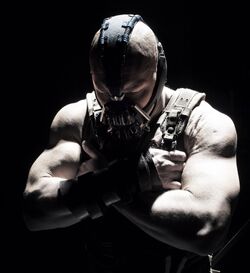The Aurora shooting last week brought out a chivalrous streak in several of the men present. And it also brought out this incredible story about Petra Anderson (whose family is known to several of our writers). A previously undetected birth defect had left a narrow channel of fluid in her brain, which the pellet traveled through doing minimal damage.
A new CBO estimate shows the recent healthcare reform bill costing less than previously projected. However, the cost savings is a result of fewer people being covered by healthcare insurance.
I’ve written before about how both political parties need reform. Front Porch Republic last week echoed the same thing:
[For the Left] Above all, you must embrace choice. Choice is the birthright par excellence. You should probably be against Late Capitalism, which, better than any ism, really puts choice on offer (think of your Netflix account), but opposing Late Capitalism is pretty damned hard to do in the coffee shop, where the wi-fi is free, the flat-screen is zeroed in on msnbc, and everything is a matter of choice—even the bagels and scones. (You couldn’t possibly live anywhere where you couldn’t get a good bagel.)
But otherwise you must celebrate choice. You must, zum Beispiel, be “pro-choice”—unless, of course, the choice on offer is to be against pro-choice. “Not Your Child, Not Your Choice,” as the bumper sticker says—next to the one that says “The Chair is Barbaric!”
(Leftist morality lends itself to bumper stickers.)
* * *
[For the Right] Above all, you must embrace choice: Choice is the birthright par excellence. You should probably be against social programs (also known as Socialism), which, better than any ism on offer, has put sidewalks, highways, fire and police departments, and especially Social Security at your disposal. But otherwise you must be pro-choice.
Besides, opposing Choice is pretty damned hard—especially at Wal-Mart, where prices are really really low on Cheese Doodles, hotdog buns, and flat-screen TVs. So you embrace choice. Plus you “choose life”—unless, of course, the life on offer belongs to those on death row or to those godless ragheads on the losing end of an aggressive and bellicose foreign policy, in which case you choose death. But at least you’ve got a choice, Choice being what it is (the birthright par excellence).
“Choose Life,” as the bumper sticker says—next to the one that says “Afghanigone!”
(Right-wing morality lends itself to bumper stickers.)
Election update: more evidence is surfacing that President Obama is abusing his official power by harassing those who oppose his reelection. That’s the sort of thing that helped get Nixon in trouble. Ane he’s running his campaign like he runs the executive branch--with little concern for budgeting. Considering all this, it’s tempting to wonder what keeps him even in the polls. But he may be running into some trouble in New Mexico and Virginia. And right on the heels of his “you didn’t build that” comment comes another: “We tried our plan and it worked.” Maybe Obama isn’t keeping up after all.
But James O’Keefe has a plan to revitalize the nation and put people back to work: dig holes and fill them back in. No really, that’s it. Might I humbly suggest that we paint our bridges to look like they’re made out of Lego instead?
And finally, I didn’t realize that mixing cornstarch and water led to such a weird result:










